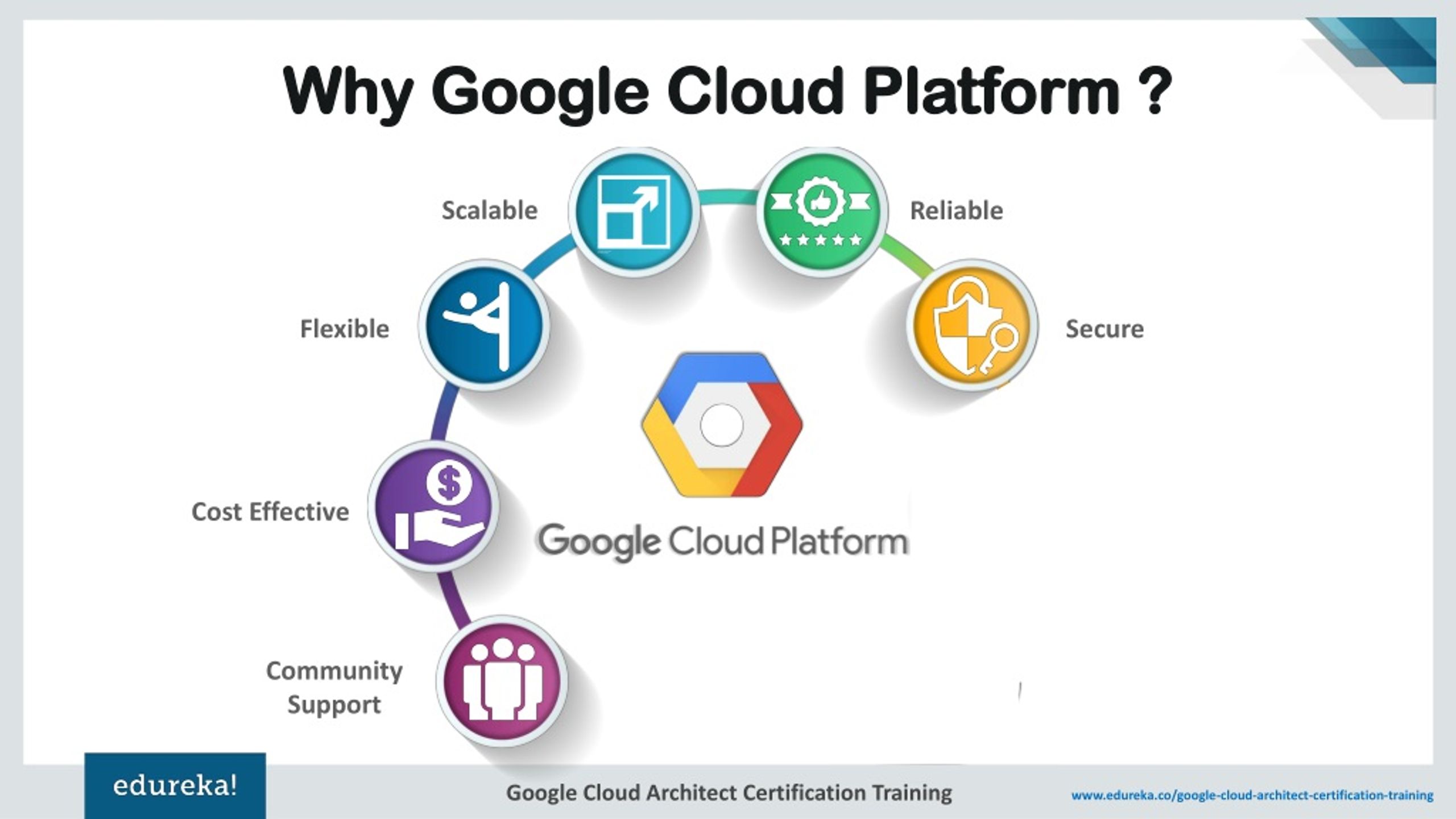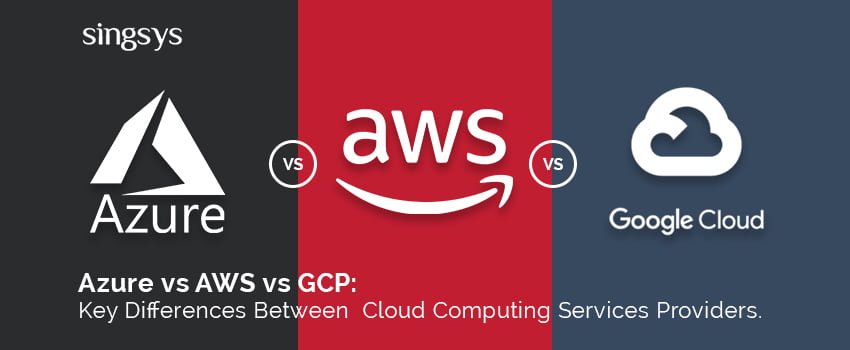What is Google Cloud Platform (GCP)?
Google Cloud Platform (GCP) is a suite of cloud computing services that offers a wide range of resources and tools for businesses and individuals. GCP provides infrastructure as a service (IaaS), platform as a service (PaaS), and serverless computing environments, empowering users to build, deploy, and manage applications and data in a scalable and secure manner. With its extensive array of services, including computing, storage, networking, data analytics, machine learning, and artificial intelligence, GCP has become a significant player in the cloud computing market.
GCP services cater to various industries, such as finance, healthcare, gaming, and retail, providing tailored solutions to meet specific business needs. Organizations can leverage GCP to modernize their IT infrastructure, streamline operations, and drive innovation. Moreover, GCP’s seamless integration with other Google products, such as Google Workspace and Android, creates a cohesive and unified digital ecosystem for users.
Why Learn Google Cloud Platform?
Google Cloud Platform (GCP) has experienced significant growth in recent years, making it an attractive choice for businesses and professionals seeking to expand their cloud computing skills. Learning GCP offers several benefits, including:
- Growing market share: GCP is one of the top three cloud service providers, alongside Amazon Web Services (AWS) and Microsoft Azure. As more organizations adopt cloud technologies, the demand for GCP expertise will continue to rise.
- Extensive range of services: GCP provides a wide array of services catering to various industries and use cases. From infrastructure as a service (IaaS) to serverless computing, GCP enables users to build, deploy, and manage applications and data with ease.
- Integration with Google products: GCP integrates seamlessly with other Google products, such as Google Workspace and Android, creating a unified digital ecosystem for users.
- Cost-effective: GCP offers flexible pricing models, including pay-as-you-go, reserved instances, and sustained use discounts, making it an affordable choice for businesses of all sizes.
- Innovative technologies: GCP is at the forefront of cutting-edge technologies, such as artificial intelligence (AI), machine learning (ML), and data analytics, providing users with access to the latest tools and capabilities.
Becoming a GCP certified professional can enhance one’s career prospects and earning potential. GCP certifications validate a professional’s expertise in cloud computing and demonstrate their ability to design, implement, and manage GCP solutions effectively. These credentials are recognized globally and are highly sought after by employers in various industries.
How to Get Started with Google Cloud Platform Learning
Starting your GCP learning journey is an exciting endeavor, and the following step-by-step guide will help you get started:
- Create a Google Cloud account: To access GCP services, sign up for a Google Cloud account at https://cloud.google.com/. Google offers a free tier with limited resources, allowing you to explore GCP without incurring any costs.
- Explore the GCP Console: Familiarize yourself with the GCP Console, a web-based interface that enables you to manage GCP resources and services. The Console provides a user-friendly interface for creating, monitoring, and optimizing GCP resources.
- Understand essential GCP services: Begin by learning about core GCP services, such as:
- Compute Engine: A scalable and flexible infrastructure as a service (IaaS) offering that allows users to deploy virtual machines (VMs) on demand.
- Kubernetes Engine: A managed environment for deploying, scaling, and managing containerized applications using Google’s Kubernetes container orchestration system.
- Cloud Storage: A highly-scalable, durable object storage service for storing and retrieving large amounts of data.
- Cloud Functions: A serverless execution environment for building and connecting cloud services.
- BigQuery: A fully-managed, petabyte-scale, and cost-effective data warehouse for analyzing data using SQL-like queries.
By understanding these essential services, you will be well-equipped to tackle more advanced GCP concepts and use cases.
Key GCP Services to Learn
Google Cloud Platform (GCP) offers a wide range of services catering to various industries and use cases. Here are some of the most popular and in-demand GCP services to learn:
- Google Compute Engine: Google Compute Engine is a scalable and flexible infrastructure as a service (IaaS) offering that allows users to deploy virtual machines (VMs) on demand. Compute Engine supports various operating systems, including Linux and Windows, and enables users to customize VM resources, such as CPU, memory, and storage, to meet their specific needs.
- Google Kubernetes Engine: Google Kubernetes Engine (GKE) is a managed environment for deploying, scaling, and managing containerized applications using Google’s Kubernetes container orchestration system. GKE simplifies the deployment and management of containerized applications, enabling users to focus on building and delivering applications rather than managing infrastructure.
- Google Cloud Storage: Google Cloud Storage is a highly-scalable, durable object storage service for storing and retrieving large amounts of data. Cloud Storage offers various storage classes, such as Standard, Nearline, and Coldline, catering to different data access requirements and cost constraints.
- Google Cloud Functions: Google Cloud Functions is a serverless execution environment for building and connecting cloud services. Cloud Functions enables users to run code in response to events, such as changes to data in Cloud Storage or Cloud Firestore, without having to manage the underlying infrastructure.
- BigQuery: BigQuery is a fully-managed, petabyte-scale, and cost-effective data warehouse for analyzing data using SQL-like queries. BigQuery supports various data sources, including Cloud Storage, Cloud Firestore, and Google Sheets, and enables users to perform complex data analysis and visualization using tools such as Data Studio.
By learning these key GCP services, you will be well-equipped to tackle various cloud computing use cases and scenarios, enhancing your skills and employability in the cloud computing market.
Hands-On GCP Learning: Projects and Labs
Hands-on experience is crucial for mastering Google Cloud Platform (GCP) skills. Engaging in GCP projects and labs enables you to apply theoretical knowledge to practical scenarios, enhancing your understanding and proficiency. Here are some project and lab ideas to consider:
- Deploy a virtual machine (VM): Learn how to deploy a VM using Google Compute Engine. Customize the VM resources, such as CPU, memory, and storage, and configure the networking settings. This project will help you understand the fundamentals of IaaS offerings and the benefits of cloud computing.
- Create a Kubernetes cluster: Dive into Google Kubernetes Engine (GKE) by creating a Kubernetes cluster. Configure the cluster resources, deploy containerized applications, and manage the cluster using Kubernetes commands. This project will provide insights into container orchestration and the benefits of managed services in GCP.
- Build a data pipeline with BigQuery: Utilize BigQuery to build a data pipeline that processes and analyzes large datasets. This project will help you understand the power of cloud-based data warehousing and the benefits of serverless computing in GCP.
- Create a serverless function with Cloud Functions: Learn how to create a serverless function using Google Cloud Functions. Trigger the function using various events, such as changes to data in Cloud Storage or Cloud Firestore. This project will provide insights into event-driven programming and the benefits of serverless computing in GCP.
- Secure your GCP environment: Explore GCP’s security features by configuring access controls, encryption, and logging. This project will help you understand the importance of security in cloud computing and the benefits of GCP’s robust security offerings.
By engaging in these hands-on projects and labs, you will gain practical experience and develop a deeper understanding of GCP services and their applications. These experiences will also strengthen your resume and improve your employability in the cloud computing market.
Google Cloud Certifications and Preparation Resources
Google Cloud certifications validate your expertise in GCP services and demonstrate your proficiency in cloud computing. Earning a GCP certification can enhance your career prospects, increase your earning potential, and improve your credibility in the industry. Here are some popular GCP certifications and preparation resources:
- Google Cloud Certified – Associate Cloud Engineer: This certification validates your ability to deploy, manage, and monitor GCP services and resources. Preparation resources include the official Google Cloud training course, practice exams, and study guides.
- Google Cloud Certified – Professional Cloud Architect: This certification demonstrates your expertise in designing, managing, and securing GCP solutions. Preparation resources include the official Google Cloud training course, practice exams, and study guides.
- Google Cloud Certified – Professional Data Engineer: This certification validates your skills in designing, building, and managing data processing systems using GCP services. Preparation resources include the official Google Cloud training course, practice exams, and study guides.
Other GCP certifications include Professional DevOps Engineer, Professional Machine Learning Engineer, and Professional Security Engineer. Visit the Google Cloud certification website for more information on available certifications and preparation resources.
In addition to official Google Cloud resources, consider exploring third-party training platforms, such as Coursera, Udemy, and LinkedIn Learning, for additional preparation resources and practice exams. Engaging in online forums and communities, such as the Google Cloud Community and Reddit’s r/googlecloud, can also provide valuable insights and support during your certification journey.
Staying Updated with GCP: News, Blogs, and Community
Staying updated with Google Cloud Platform (GCP) news, updates, and best practices is crucial for continuous learning and professional growth. Here are some popular GCP blogs, newsletters, and community resources to help you stay informed:
- Google Cloud Blog: The official Google Cloud Blog provides updates on new features, services, and best practices. Subscribe to the blog to receive notifications on new posts and announcements.
- Google Cloud Community: Join the Google Cloud Community to connect with other GCP professionals, ask questions, and share knowledge. The community offers forums, user groups, and events to help you stay engaged and informed.
- GCP Podcasts: Listen to GCP-focused podcasts, such as The New Stack, Google Cloud Platform Podcast, and GCP Podcast, to learn about new features, services, and best practices from industry experts.
- GCP Newsletters: Subscribe to GCP newsletters, such as Google Cloud Platform Weekly Digest and Google Cloud Platform News, to receive weekly updates on GCP news, events, and announcements.
- GCP YouTube Channels: Watch GCP-focused videos on YouTube channels, such as Google Cloud Platform, GCP TV, and The Cloud Architect, to learn about new features, services, and best practices.
By engaging with these resources, you will stay informed about GCP news, updates, and best practices, enabling you to make informed decisions and optimize your GCP skills. Regularly engaging with the GCP community will also provide opportunities for networking, collaboration, and professional growth.
Conclusion: Embarking on Your GCP Learning Journey
Google Cloud Platform (GCP) is a powerful and versatile cloud computing platform that offers a wide range of services and applications. Learning GCP can open up new opportunities for career growth, professional development, and business innovation. By following this comprehensive learning guide, you can embark on a successful GCP learning journey.
To get started, create a Google Cloud account and explore the GCP Console. Familiarize yourself with essential GCP services, such as Google Compute Engine, Google Kubernetes Engine, Google Cloud Storage, Google Cloud Functions, and BigQuery. Engage in hands-on experience by completing various GCP projects and labs, such as deploying a virtual machine, creating a Kubernetes cluster, and building a data pipeline with BigQuery.
Consider pursuing GCP certifications to validate your skills and demonstrate your expertise. Utilize official Google Cloud training courses, practice exams, and study guides to prepare for certification exams. Stay updated with GCP news, updates, and best practices by engaging with popular GCP blogs, newsletters, and community resources.
By following this roadmap, you can develop a strong foundation in GCP and position yourself as a valuable asset in the cloud computing market. Emphasize hands-on experience, continuous learning, and community involvement to maximize your GCP learning potential and achieve long-term success.






